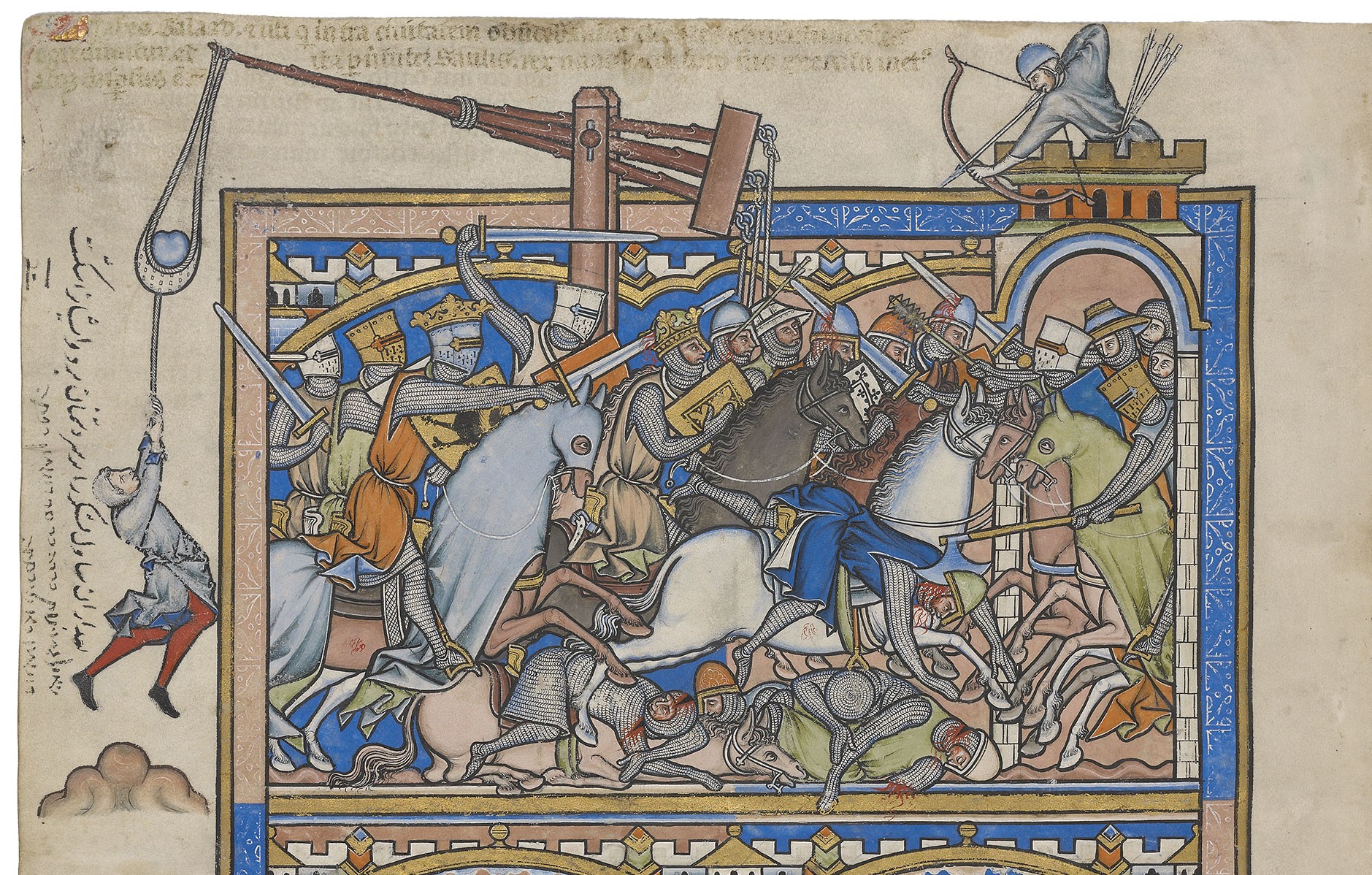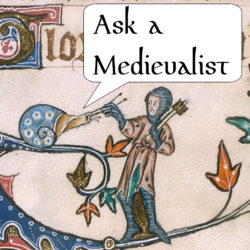Synopsis
So, say you like what Christianity has to offer generally. That Jesus kid seems like he has a good head on his shoulders. But theologically, you have a problem. Maybe you’re a Gnostic and think they’re wrong about the spiritual vs physical world. Maybe you think more women should be allowed to participate in services. Maybe you think that whole trinity thing is a little weird. Maybe you just want to make the Church really angry and get killed in a crusade. But it’s still before Martin Luther, so what do you do? Welcome, traveler, to the world of proto-Protestant heresies. From the Ante-Nicene period during which things were still getting figured out to the Cathars, join us for a conversation about proto-Protestants and their heresies, with bountiful references to Life of Brian.
Annotations
1/ See episode 47 for more on Gnosticism and Manichaeism. Also, by dualism, we mean specifically the (initially) Gnostic belief that there’s a spiritual world that is the “real” world, and also a physical world that is kind of a mistake. There are other kinds of dualism. [Hi Descartes!!–Jesse]
2/ Em references Imagined Communities, by Benedict Anderson: take a drink.
3/ Liminal: being between two different states, often because of a societal ritual.
Communitas: the community found during a state-change ritual. [Thank you Victor Turner!–Jesse]
4/ Bart Ehrman texts:
Lost Christianities
Lost Scriptures
Forgery and Misforgery
Misquoting Jesus
5/ Ante-Nicene period (Christianity before 325 CE): the time before the Council of Nicea. People were figuring things out.
Actual filmic representation: “Blessed are they who convert their neighbors thusly, for they shall inhibit their girth. And to them only shall be given…”: https://www.youtube.com/watch?v=deDlab6vFgg
The Judean People’s Front: https://www.youtube.com/watch?v=a0BpfwazhUA
6/ Jesus chasing the moneylenders out of the temple: Matthew 21:12–17, Mark 11:15–19, Luke 19:45–48 AND last but definitely not least, the more dramatic retelling with whips and table-flipping, John 2:13–16.
Also, Jesus yelling at the Pharisees: Luke 11:37–54, Matthew 23:1–39. Also Godspell “Alas for you”: https://youtu.be/oeBy1Ee8LCg
7/ Destruction of the Second Temple in 70 CE https://en.wikipedia.org/wiki/Second_Temple
For more on Yom Kippur recapitulating the Temple ceremonies, see: https://en.wikipedia.org/wiki/Yom_Kippur#Temple_service
8/ Sacraments, for those curious: baptism, communion, confirmation, penance, marriage, last rights, and taking holy orders. I suppose most Catholics can only ever do six out of seven. But if you want to read about a guy who gets to do all seven, read Priestdaddy, by Patricia Lockwood. Also, read it because it’s amazing.
9/ As you might surmise, Christian churches that reject the position that the Christian god is a trinity are called…nontrinitarian. Some of the groups you may have heard of that hold this belief include Mormons, Jehovah’s Witnesses, Christian Scientists, and members of the Unitarian Universalist Christian Fellowship (a sub-group of Unitarian Universalists, who are not themselves Christian but instead the religious equivalent of a hug and a cup of tea while listening to NPR). For more, check out: https://en.wikipedia.org/wiki/Nontrinitarianism
10/ The Council of Nicea, 325 CE, in Turkey: remember this, it’s one of those big ones that comes up a lot.
11/ Ignatius of Antioch: https://en.wikipedia.org/wiki/Ignatius_of_Antioch
Lotta stuff happened in Antioch. Well, maybe that’s like saying a lot of stuff happens in New York or London.
12/ Nag Hammadi Library. See also episode 47 (note 6).
13/ For those wondering, the seven Unitarian principles are: the inherent worth of every person; justice, equity, and compassion in human relations; acceptance of one another and encouragement to spiritual growth; a free and responsible search for truth and meaning; the right of conscience and the use of democratic process within their congregations and society; the goal of world community with peace, liberty, and justice for all; respect for the interdependent web of all existence of which we are a part.
Em: I love Unitarianism as a religion. It just… doesn’t have quite as easy a time explaining itself as, e.g., “There is no G-d but G-d and Muhammed is his messenger,” which I have to admit is extremely pithy.
14/ Council of Ephasus, 431 CE. Exit the Assyrian Church.
Council of Calcedon, 451 CE. Exit the Oriental Orthodox Churches.
Miaphysitism: Jesus has one nature. https://en.wikipedia.org/wiki/Miaphysitism
Great schism: 1054 CE.
More on schisms! https://en.wikipedia.org/wiki/Schism#Christianity
Nice branch graph: https://en.wikipedia.org/wiki/Schism#/media/File:Christianity_Branches.svg
15/ For more on icons, see episode 10 on Icons and Iconography!
16/ Did we talk about priests getting married at some point? I swear we did but I don’t remember which episode. (I think it’s come up on the side, but never as a focus.–Jesse)
17/ RI Moore, Formation of a Persecuting Society
18/ Interestingly, though the ritual may work regardless of the vehicle, since we recorded this the Vatican announced that the ritual does not work if the priest makes a mistake with the wording: they ruled that all the baptisms performed over 16 years by an Arizona priest who said “we” instead of “I” were invalid. [Yes, the ritual works regardless of the ritual, but only if the ritual is exactly right! Hmmmm.—Jesse]
19/ Specifically I think the Bishop of Winchester (London) owned a brothel there (in an area called the Liberty of the Clink). See also episode 24, note 10 (and associated part of the episode). https://en.wikipedia.org/wiki/Liberty_of_the_Clink
20/ Malcolm Lambert, Medieval heresy
Bogomilism: https://en.wikipedia.org/wiki/Bogomilism
Bogomil (the priest): https://en.wikipedia.org/wiki/Bogomil_(priest)
The Cathars! See also episode 30. (Alan of Lille: https://en.wikipedia.org/wiki/Alain_de_Lille)
Se Malcolm Barber, The Cathars
21/ Katherine Jansen, The Making of the Magdalen
22/ Bernard of Clairvaux (1090–1153). (Eberwin of Steinfeld writes Bernard about the burning of Cathars in Cologne in 1143.)
23/ The transmigration of souls: met-him-pike-hoses (a major theme in Ulysses). Sorry, metempsychosis (https://en.wikipedia.org/wiki/Metempsychosis). AKA a form of reincarnation–the movement of souls to a new body after death. For complicated reasons (not worth belaboring in a footnote), this is different from the Buddhist idea of reincarnation. The term and idea in this case both arose in Ancient Greece.
24/ Raymond VI of Toulouse https://en.wikipedia.org/wiki/Raymond_VI,_Count_of_Toulouse
25/ The Dominicans–see episode 30.
26/ The Third Lateran Council (1179)
27/ Abbot of Citeaux (the primary Cistercian monastery) Arnaud Amalric: “Kill them all, and God will know His own.” (1209, but written about in 1224 by the Cistercian Caesarius of Heisterbach.)
28/ From this point on (about 1:15:xx), Jesse’s audio gets a little wonky. I did my best, guys. Sorry.
Podcast: Play in new window | Download

